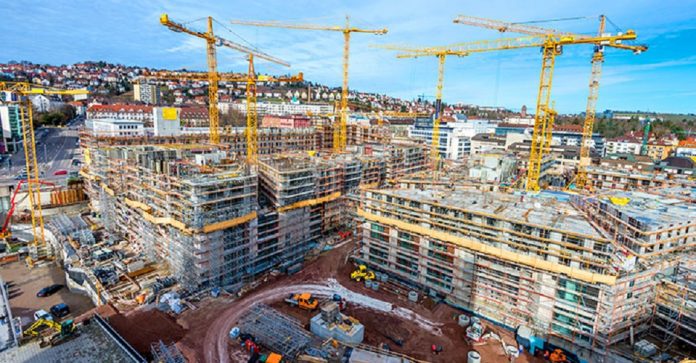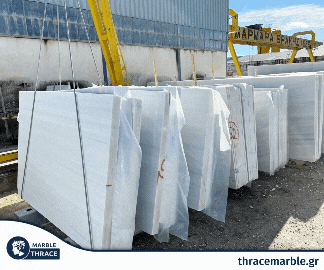Globally, the construction industry hugely influences the economy, the environment and the society. In 10 trillion USD revenue and added value of 3.6 trillion, the sector is account for about six percent of the world GDP, according to World Economic Forum’s 2016 report.
The sector’s contribution is greater in the case of developing countries including Ethiopia and the industry has been playing a crucial role in sustaining country’s rapid and equitable socio-economic development and changing the livelihood of millions of peoples.
Information obtained from Ministry of Construction indicated that the sector had a 9.5 percent share from Ethiopia’s total Gross Domestic Product (GDP) in 2016.
The construction sector has made immense contribution in urban development whilst benefiting low-income citizens by providing cost-effective and modern houses. It is also The sector is the second largest employing industry through creating jobs for over 1.8 million citizens thereby alleviating urban poverty.
It is evident that the construction industry is a cross-sectoral development driver that is a pre-condition to deliver infrastructures necessary for socio-economic development. The sector embraces the process by which the physical infrastructure is planned, designed, constructed, altered, repaired, and demolished. The sector, in this regard, has been paying a pivotal role in satisfying public’s ever-increasing demand for house, transport, utilities and physical infrastructures, among others.
Moreover, the industry has contributed to entrepreneurship and private sector’s participation significantly increases in that the number of contractors, consultants and suppliers that are engaged in the construction business has shown steady progress.
Ethiopia set a vision of becoming a middle-income economy by 2025 and the realization of the vision partly depends on the existence of a reliable and competitive local construction industry that could deliver quality services. Taking in to account the role expansion of infrastructure (railways, roads, telecom, power, irrigation) for the realization of Growth and Transformation Plan and other goals, the current government has allocated huge budget to the industry.
Massive road, railway and airports development have been executing to enhance country’s foreign trade and boost its competitiveness in the international market. Furthermore, the structures would also have a vital role in increasing public’s access to social services. The construction of irrigation and energy generating dams and sugar producing plants would contribute in satisfying domestic demands and boosting country’s foreign currency earnings.
Construction Minister Engineer Aisha Mohammed, quoted by Ethiopian Construction Technology and Management Professionals’ Association’s bulletin stated that country’s educational system is designed in the way promotes practice-oriented approach and it is aligned with the national development goals. The Minister noted that hundred thousands of youth are graduating from higher learning institutions and technical and vocational schools to ensure the sustainability of the infrastructure development through local capacity.
In its endeavors to place Ethiopia among middle income economies, the government is working to have a dynamic, efficient and competitive local construction industry that fosters economic growth and international competitiveness. Plan was also set to enhance local contractors’ capacity to enable them execute most of the construction projects by their own.
Despite its significant importance and achievements in the last two decades, the Ethiopian construction industry has encountered challenges. According to Engineer Aisha, quality gaps, time and cost overruns attribute to the sector’s poor performance. Furthermore, shortage of competent, certified human resources together with lack of effective construction project management system and the change resistant behavior of the industry has resulted in low productivity. The unreliable, import-dependent and inefficient supply chain of the construction materials, machineries and finance stated to worsen the situation.
To address the gaps in the construction sector, the government has ratified a Construction Industry Policy that would identify critical constraints and developed policy directions together with their implementation strategies to bring the required sectorial transformation.
The Policy underlines that Ethiopia’s objectives and goals in the priority sectors such as education, health, water, agriculture, manufacturing, could effectively operate on the availability of reliable, strong and competitive local construction industry that enable to deliver quality services to its stakeholders. New investments in the construction and rehabilitation of infrastructure would be given priority parallel with the maintenance of the existing constructed facilities.
The Minister expressed that the Policy aims to accelerate the development of Ethiopian construction industry and prepares it to meet the future demands of the economy with vision of creating regionally and internationally competitive industry by 2025. “The program is envisaged to be implemented for the next 10 years and required to be enforced with strong commitment from all stakeholders of the construction industry at federal and state levels,” as she quoted by the bulletin.
Among many of the envisaged interventions that are stipulated in the policy framework including fostering import substitutions, prompting subcontracting and joint venture schemes between local and international contractors and consultants to ease entry barriers for new local companies and create perfect competition. In addition to the above interventions, the government has established a Construction Industry Council to deliberate and provide direction on policy ideas to enhance the contribution of the construction industry in the overall national development. The Council composed of different stakeholders from public, private and civic societies and expected to play an essential role in bringing new ideas that fosters the industry’s transformation.
Engineer Aisha remarked that the Ministry has piloted an intensive campaign to bring attitudinal changes and avert rent seeking tendencies by promoting professionalism and creating a system that ensures transparency and accountability. “There are several initiatives that are under pipeline to transfer modern technologies through identification, piloting, adoption, adaptation, scale up and upgrade process,” she added.
To put in the nutshell, Ethiopia should walk a long way to make its construction industry internationally competitive. In this regard, addressing shortcomings in the construction project management and avert the time and cost overruns would have a significant importance.
Above all, the integrated efforts of all actors in the sector to address quality and human resource related problems would have a key role to accelerate the construction industry in the view to bring the overall transformation in the national economy.
By Bilal Derso
Source: allafrica.com








































